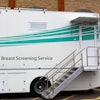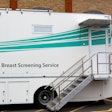A new excise tax on medical devices imposes a serious burden on imaging and radiotherapy manufacturers already operating in an extremely competitive global marketplace, according to comments submitted to the U.S. Internal Revenue Service (IRS) by the Medical Imaging and Technology Alliance (MITA).
The tax, mandated by the Health Care and Education Reconciliation Act of 2010, is so broad that it hinders manufacturers' ability to bring new devices to market, MITA said. Medical imaging and radiation therapy equipment is often considered capital equipment because it is reusable and can last for many years, and the device tax creates two problems for capital equipment, according to MITA:
- Medical imaging device users may choose to purchase service contracts that include replacement parts to maintain a device's functionality; the replacement of component parts of a machine that has already been taxed should not be taxed a second time.
- The entire tax should not be applied at the beginning of a lease of medical imaging or radiotherapy equipment; the device tax should be imposed on the final sale of the equipment to the end-user customer to match the tax expense with the sales revenue.
"The IRS must ensure that the implementation of the tax does not create an uneven playing field in which FDA-registered manufacturers are put at a competitive disadvantage when selling their products compared to others in the marketplace who resell these products," MITA said in a statement.



















